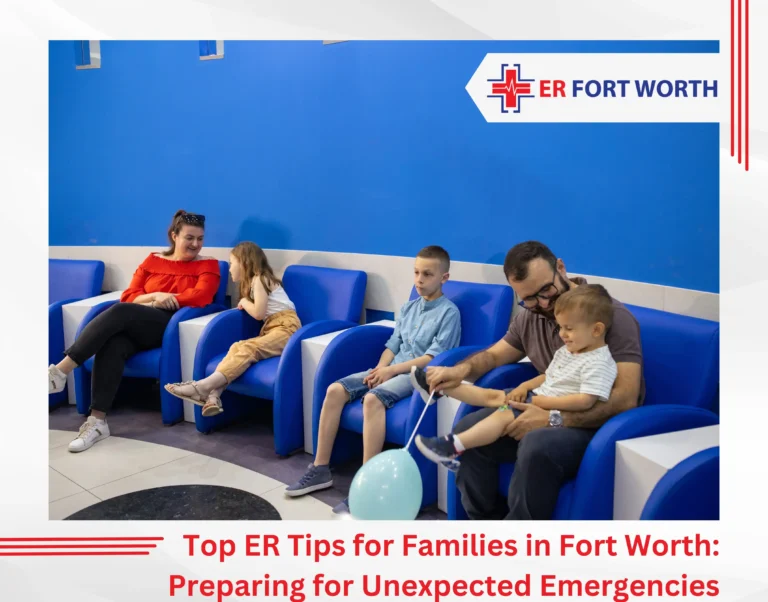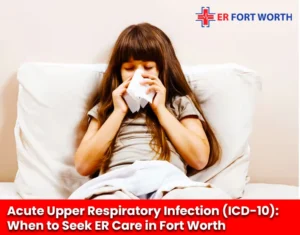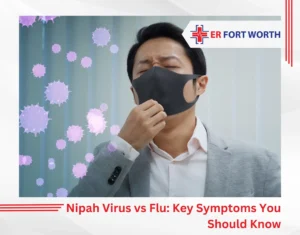Medical emergencies can shake even the most prepared families. Understanding how to respond, from recognizing critical symptoms to knowing what happens in the ER, helps you stay calm and make better decisions.
Our essential ER tips for families will help you prepare for emergency situations before they arise. Learn what to expect, what to bring, and how to navigate emergencies at Fort Worth’s emergency care facility.
Recognizing When an ER Visit Is Necessary
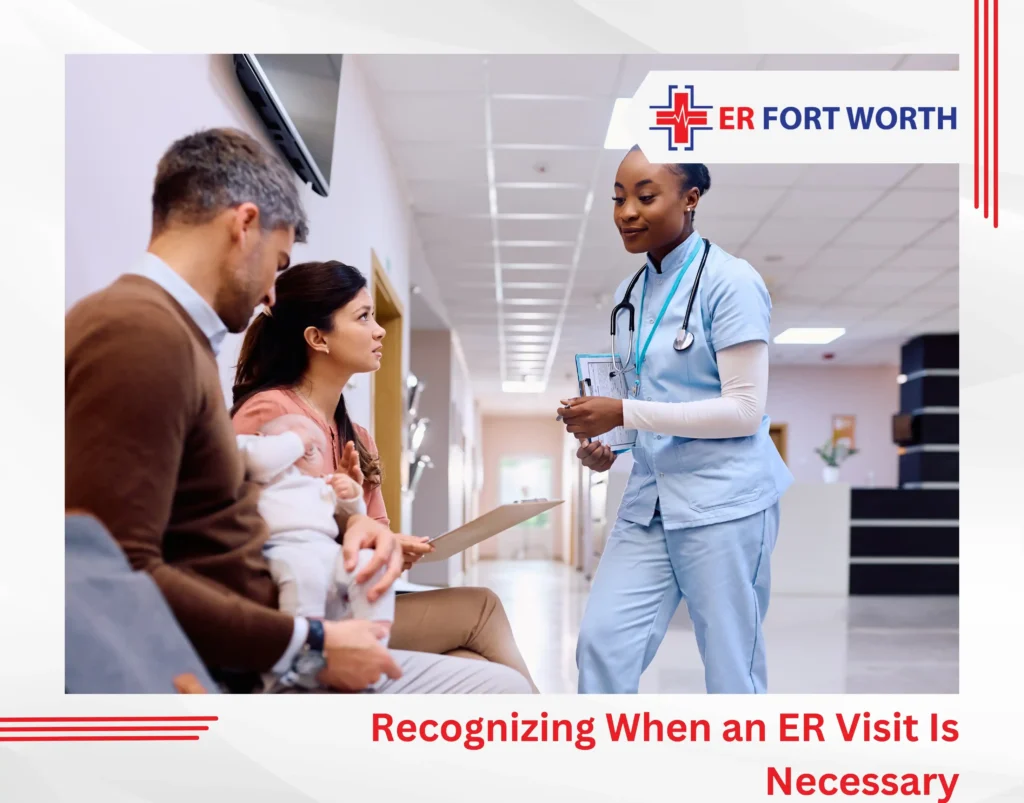
Medical symptoms can be confusing. Is that chest pain indigestion or something more serious? Should you wait out that persistent fever or seek help immediately? In medical emergencies, we know these moments of uncertainty can be stressful.
At ER of Fort Worth, we provide advanced emergency care for conditions that require immediate medical attention and monitoring.
Signs You Should Go to the ER
Get emergency help in the following scenarios:
- Chest pain accompanied by breathing difficulties
- Major head injuries or loss of consciousness
- Excessive bleeding
- Significant burns
- Fractures with deformity
- Sudden weakness, confusion, or slurred speech
- Severe allergic reactions (swelling, trouble breathing, hives)
- Persistent high fever in infants and young children
- Seizures
If you’re uncertain about the severity of a medical situation, call 911 or reach out to the nearest emergency room for assistance.
Also Read: Common Reasons for Emergency Room Visits
What to Bring: ER Tips for Families
A well prepared emergency bag can make a trip to the ER more efficient. Consider having these essentials ready at home:
- ID and insurance documentation
- A list of prescriptions and allergies
- Emergency contacts and primary care physician’s information
- Comfort items for kids (favorite plushie, blanket, snacks)
- Copies of previous medical records (if relevant)
Having this information available can speed up the registration process and ensure that the medical team has the necessary details for timely care.
Understanding ER Costs and Insurance Coverage
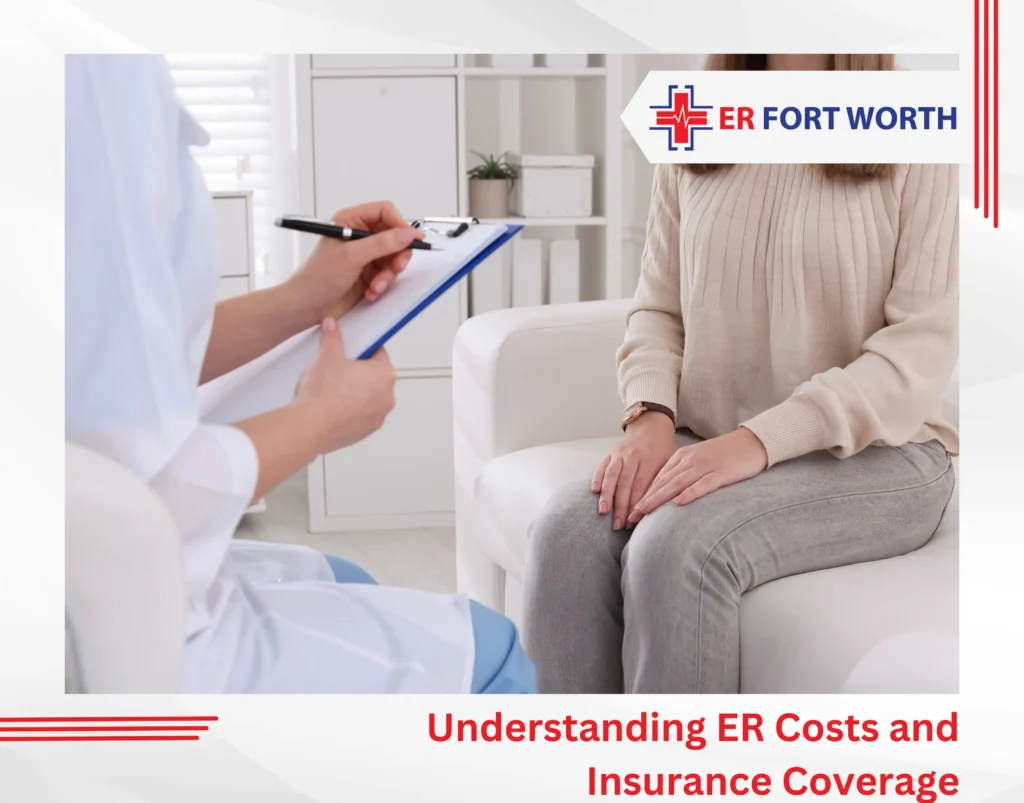
Emergency care is about getting the treatment you need first, but we understand ER cost concerns weigh heavily on families. Here’s what you should know about ER expenses:
How Much Does an Emergency Room Visit Cost?
The cost of emergency care varies based on your specific medical needs, from initial evaluation to any necessary diagnostic tests or treatments. Complex conditions requiring advanced imaging, laboratory work, or extended observation may increase overall costs.
How Much Is a Typical Emergency Room Visit with Insurance?
For families with insurance, the typical cost of an emergency room visit depends on your plan’s copay and deductible. We work with most major insurance providers to ensure you get the care you need without delay.
To avoid surprises, check with your insurance provider in advance to understand out of pocket costs, in-network facilities, and coverage limitations. Our team will also help you understand your coverage options during non-urgent moments.
Is an Emergency Room Bill a Fixed or Variable Expense?
An emergency room bill is a variable expense because charges vary depending on the severity of the condition, necessary treatments, and whether specialists are engaged.
Unlike fixed expenses like rent or insurance premiums, ER bills can differ greatly from one visit to another. Being conscious of possible expenses and discussing financial aid options with the healthcare provider can support managing unexpected medical costs.
Choosing the Right ER for Your Family
Not every ER offers the same quality of care. Some specialize in pediatric emergencies, whereas others concentrate on trauma or critical situations.
Factors to Consider When Selecting an ER
- Location: Proximity matters in emergencies when every minute counts.
- Specialized care: Freestanding ERs work directly with insurance providers and accept what is offered.
- Freestanding vs. hospital-based ERs: Unlike hospital ERs, freestanding facilities have minimal to no wait times.
What to Expect at the ER
Understanding the ER processes can help alleviate anxiety and prepare families for what to expect.
Typical ER Visit Process
- Triage: A nurse assesses the severity of the condition and prioritizes patients accordingly.
- Registration: You provide identification, insurance details, and medical history.
- Evaluation: Doctors conduct exams, order tests, and determine treatment.
- Treatment: This may include medications, procedures, or monitoring.
- Discharge or Transfer: If further care is needed, the patient may be offered observation services or transferred to a higher care facility. Otherwise, discharge instructions and follow-up recommendations are given.
The Importance of Follow-Up Care After an ER Visit
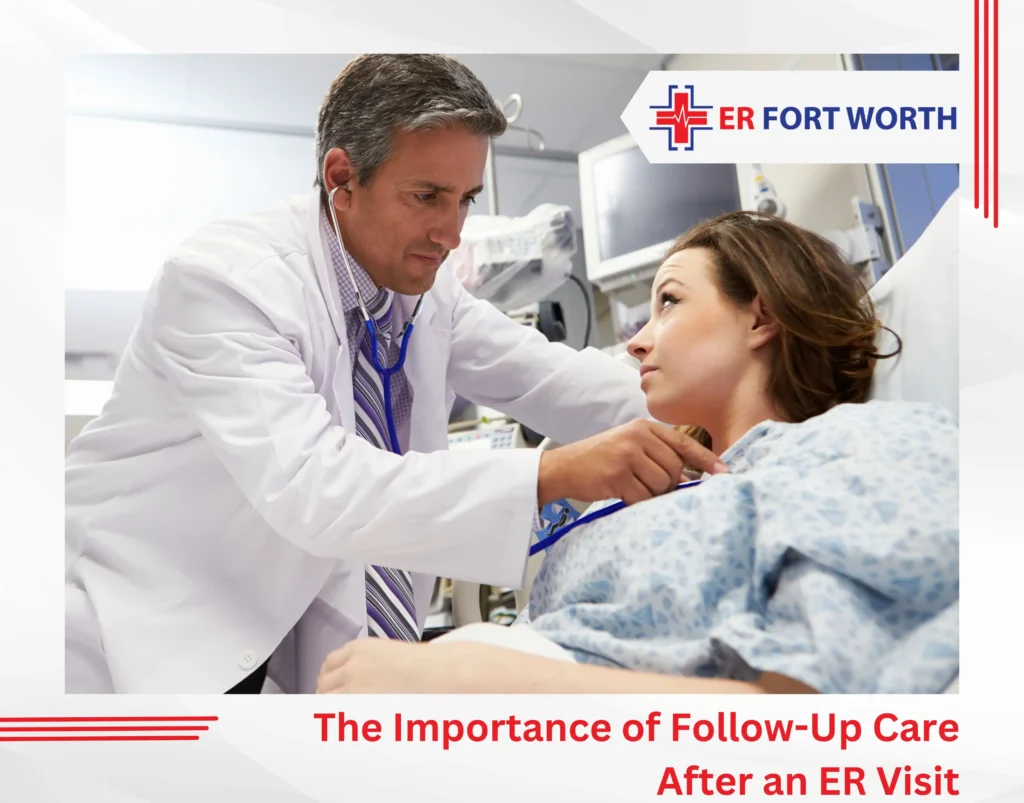
Recovery doesn’t end when you leave the ER. Schedule follow-up visits with a primary care provider or specialist to ensure ongoing evaluation and treatment. Also, keep an eye on symptoms and seek further medical attention if needed to prevent potential setbacks.
Many medical issues don’t require a trip to the emergency room. For minor health concerns like minor cuts, sprains and strains, or low-grade fever, urgent care centers and telemedicine services can be more convenient and cost-effective solutions.
However, conditions like severe allergic reactions, breathing troubles, persistent fever, and fractures, require immediate emergency care. If you’re ever unsure about your symptoms, it’s always better to seek care sooner rather than later.
At the ER of Fort Worth, we offer 24/7 emergency care for respiratory illnesses and other urgent health concerns. Our facility provides comprehensive laboratory testing services, including COVID-19, Strep, Mono, RSV, and more available anytime you need them.
FAQs
1. What is considered an emergency for kids?
Emergencies for kids include breathing troubles, severe injuries, changes in mental state, loss of consciousness, and severe allergic reactions. High fever (over 100.4°F in infants), seizures, severe dehydration, and persistent vomiting with severe pain also require urgent medical attention.
2. What are the 3 C’s of a medical emergency?
The 3 C’s are Check (assess the situation), Call (get emergency help), and Care (provide immediate assistance until help arrives). These steps guide quick action during medical emergencies.

